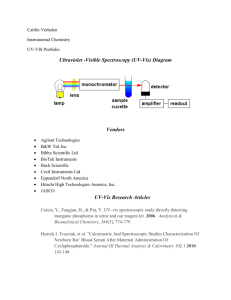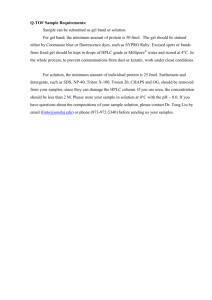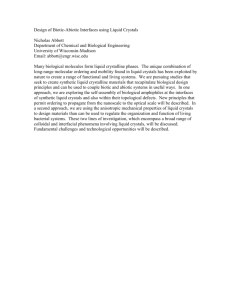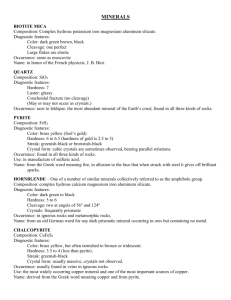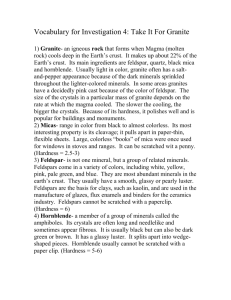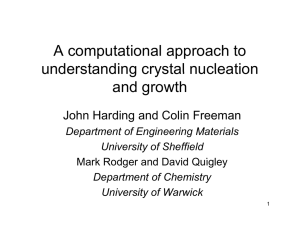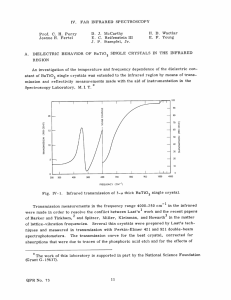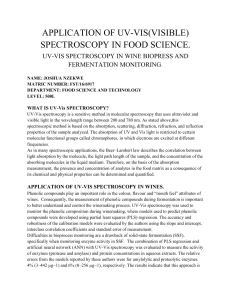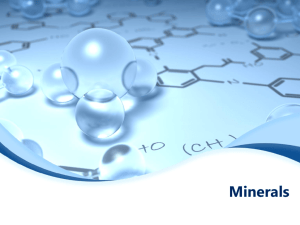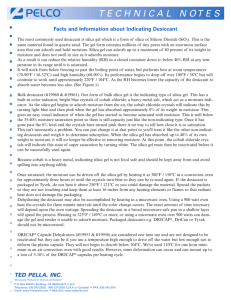ph 3951 - crystal physics
advertisement
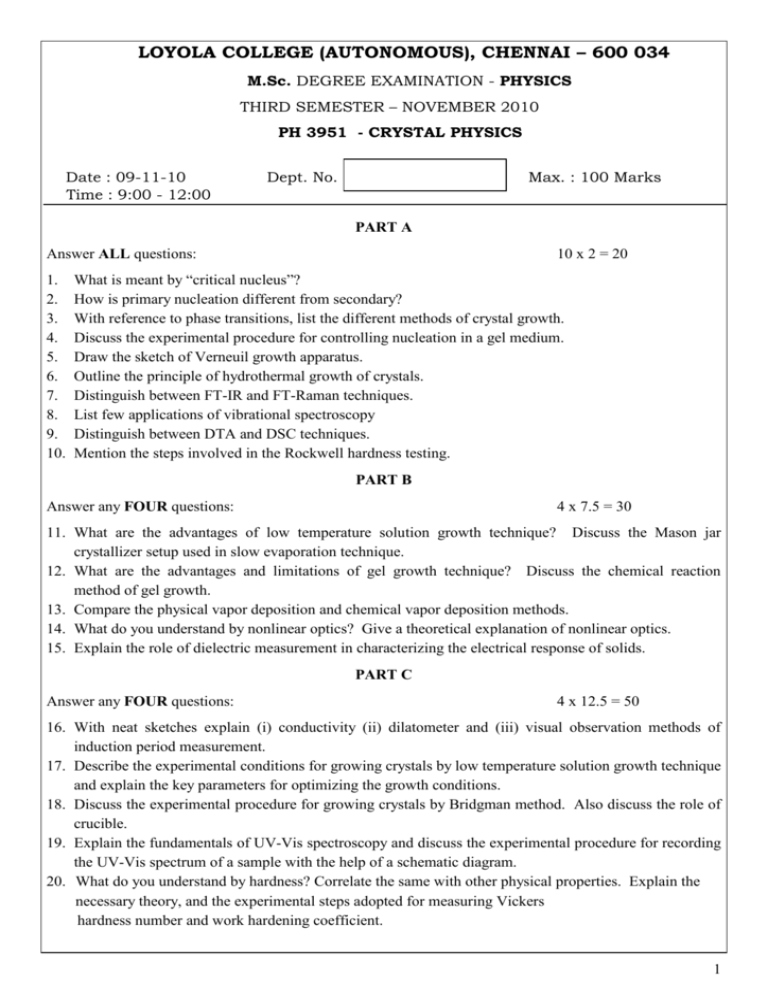
LOYOLA COLLEGE (AUTONOMOUS), CHENNAI – 600 034 M.Sc. DEGREE EXAMINATION - PHYSICS THIRD SEMESTER – NOVEMBER 2010 PH 3951 - CRYSTAL PHYSICS Date : 09-11-10 Time : 9:00 - 12:00 Dept. No. Max. : 100 Marks PART A Answer ALL questions: 1. 2. 3. 4. 5. 6. 7. 8. 9. 10. 10 x 2 = 20 What is meant by “critical nucleus”? How is primary nucleation different from secondary? With reference to phase transitions, list the different methods of crystal growth. Discuss the experimental procedure for controlling nucleation in a gel medium. Draw the sketch of Verneuil growth apparatus. Outline the principle of hydrothermal growth of crystals. Distinguish between FT-IR and FT-Raman techniques. List few applications of vibrational spectroscopy Distinguish between DTA and DSC techniques. Mention the steps involved in the Rockwell hardness testing. PART B Answer any FOUR questions: 4 x 7.5 = 30 11. What are the advantages of low temperature solution growth technique? Discuss the Mason jar crystallizer setup used in slow evaporation technique. 12. What are the advantages and limitations of gel growth technique? Discuss the chemical reaction method of gel growth. 13. Compare the physical vapor deposition and chemical vapor deposition methods. 14. What do you understand by nonlinear optics? Give a theoretical explanation of nonlinear optics. 15. Explain the role of dielectric measurement in characterizing the electrical response of solids. PART C Answer any FOUR questions: 4 x 12.5 = 50 16. With neat sketches explain (i) conductivity (ii) dilatometer and (iii) visual observation methods of induction period measurement. 17. Describe the experimental conditions for growing crystals by low temperature solution growth technique and explain the key parameters for optimizing the growth conditions. 18. Discuss the experimental procedure for growing crystals by Bridgman method. Also discuss the role of crucible. 19. Explain the fundamentals of UV-Vis spectroscopy and discuss the experimental procedure for recording the UV-Vis spectrum of a sample with the help of a schematic diagram. 20. What do you understand by hardness? Correlate the same with other physical properties. Explain the necessary theory, and the experimental steps adopted for measuring Vickers hardness number and work hardening coefficient. 1
